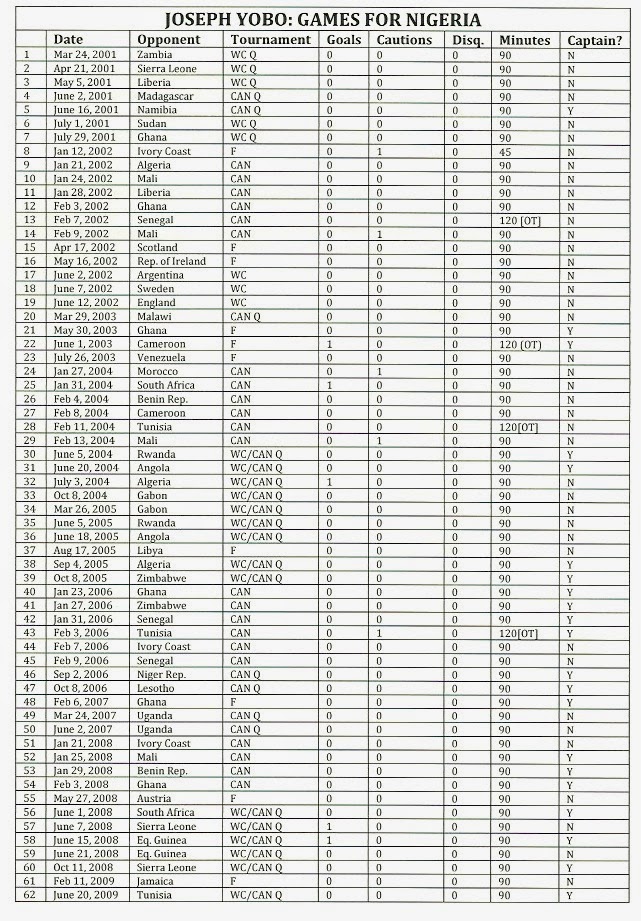NIGERIA's Defense has Enduring Questions
Nigerians may be raving about results from recent international friendlies against two of the World's Top 10 teams and two consecutive wins to begin the 2021 African Cup of Nations qualifiers late in 2019. However, beneath all of that is a shaky defense that has only one clean sheet in its last nine (9) games (see below). It has become routine to expect the Nigerian national team to concede a goal or two whether at home or away and whether it is against a top notch defense or against nondescript teams. Recently, Nigeria gave up two goals against Lesotho in a game that Nigeria largely dominated. In several of these games, the goalkeeper was hardly at fault in spite of the belief that Nigeria's problem is suspect goalkeeping. This frailty, clearly, go beyond goalkeeping. It is squarely an issue with the defense.
Nigeria's Last 9 Games (Team A)
0-2 v Madagascar June 30, 2019
3-2 v Cameroon July 6, 2019
2-1 v South Africa July 10, 2019
1-2 v Algeria July 14, 2019
1-0 v Tunisia July 17, 2019
2-2 v Ukraine September 10, 2019
1-1 v Brazil October 13, 2019
2-1 v Benin Rep. November 13, 2019
4-2 v Lesotho November 17, 2019
Gernot Rohr's Approach
Surprisingly, Nigeria's manager Gernot Rohr joined the team in 2016 and was immediately presented as an experienced defensive coach. The team has set up defensively, as should be expected under Rohr, but the results indicate that the team has been quite poor preventing opponents from scoring. Over his career with Nigeria, Rohr's team has a poor defensive record in terms of the ratio of goals conceded. He has been put forward as the man who will surpass Clemens Westerhoff's accomplishments with Nigeria. Well, he has not come close just yet. Not in terms of laurels nor in terms of defensive records. This is in spite of the fact that Westerhoff was never reputed for his team's defensive work. Yet, while Rohr's team is conceding 0.95 goals per game, Westerhoff's team conceded 0.71 goals per game. So much for Rohr being a defensive guru. Shuaibu Amodu's teams were similarly considered defensive like Gernot Rohr's team. Yet, in Amodu's two long term stints with Nigeria his teams never came close to conceding at the rate that Rohr's team has been conceding goals. Amodu's teams, in those two stints, conceded at rates of 0.6 (2001-2002) and 0.5 (2008-2010).
Defensive Play
So what may be the issue here? In the last nine games, for instance, the team has been unstable in terms of featured players. Kenneth Omeruo and Leon Balogun have been in and out of the center of the defense. Then both have been, most recently, replaced by Semi Ajayi at the heart of the defense. This constant change creates an unsettled situation at the heart of the defense and so have been results. On the wide defensive areas, Jamilu Collins' performance has declined in the last few games and while Aina has been good on the right, particularly when Nigeria has the ball, he is still a liability in the air. Awaziem, while good in one and one situations, feels tike a fish out of the water in an unusual wide position.
What has not also been mentioned is the impact of midfield play on effectiveness of the defense. Of the midfield players used most recently, Wilfred Ndidi remains the lone ball winner. Both Joseph Aribo and Alex Iwobi have not done much winning the ball but yet may have led the team in turning over possession. Perhaps, rethinking the personnel in the middle may well help the team going forward in terms of ball recovery and retaining the ball.
Loss of Personnel
Recently, Gernot Rohr concentrated his attention on inviting new players in midfield and attack since the Cup of Nations in Egypt. However, there is need to try new players in defense. This is particularly important given that Leon Balogun has been inactive, in the past two years, at the club level. This also means that his value to the national team must take a dip. Moreover, occasional defender John Ogu is also unlikely to be called up, in the future, after his long absence from first team football.
In Conclusion
Why do all the above matter? The 2022 World Cup qualifiers begin in October and Nigeria is guaranteed to have at least one tough opponent in its group with only the winner of the group proceeding to the playoff stage. Goal difference is certainly going to be a deciding factor in the World Cup group and Nigeria's current defensive results are uninspiring. While Nigeria may overcome the qualifying group for the 2021 Cup of Nations, it will likely be a different story during the World Cup qualifiers.

Comments
Post a Comment